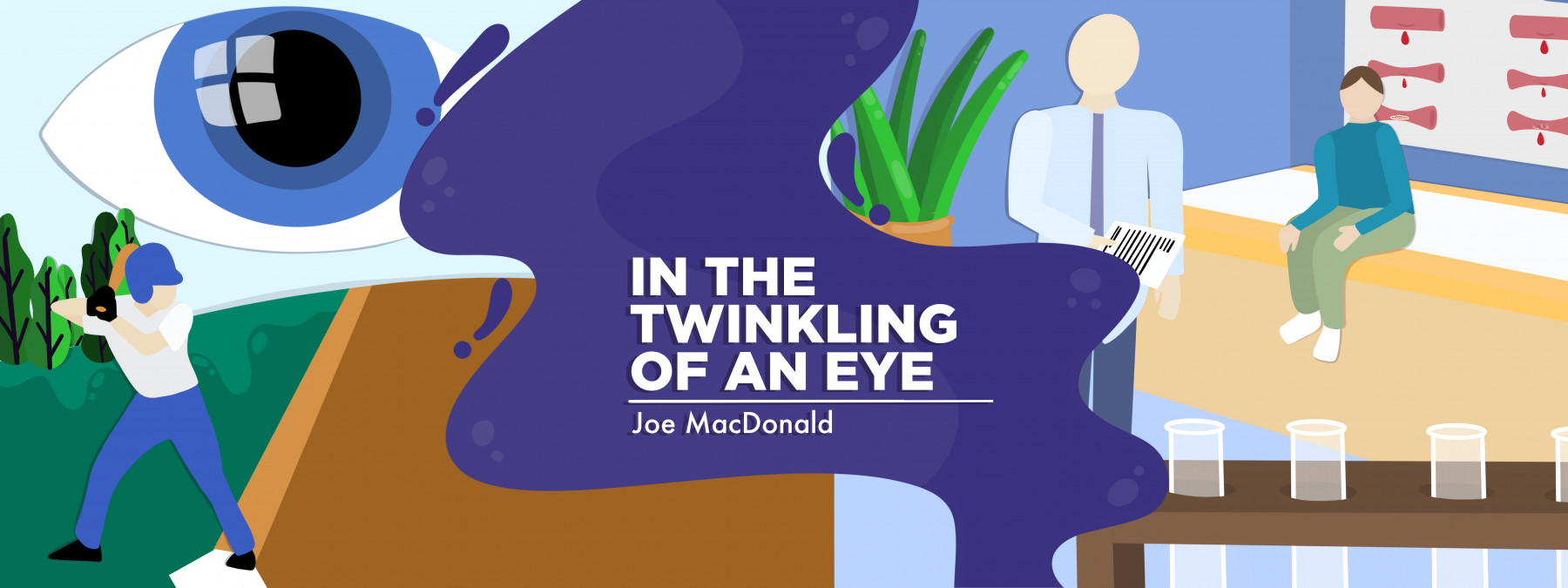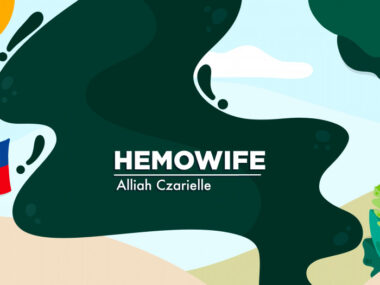Lyrics from ‘Wicked’ remind me of our journey with hemophilia
Celebrating the bridges we've crossed that we didn't know we'd crossed
Written by |

I’m a big fan of the stage version of “Wicked.” In the opening of the second act, Glinda (the “Good”) is standing in front of the citizens of Oz, sharing her delight in being center stage. She expresses her humblest gratitutions (you’ll understand why I’m using that strange word once you see the show). In “Thank Goodness,” she sings, “There’s a kind of a sort of cost/ There’s a couple of things get lost/ There are bridges you cross you didn’t know you crossed/ Until you’ve crossed.”
For some reason, those lyrics remind me of my family’s journey through the land of hemophilia. Before our first son, Julian, was born, we had no idea what that dreaded “H” word meant. When the bleeding disorders medical team entered the room to tell us that our son had “hemophilia type A, factor VIII deficiency, severe,” the first thought that ran through my head was, “Hemophilia what?” I couldn’t recall my high school biology teacher discussing this medical condition.
Just as Glinda sings, there’s “a kind of a sort of cost” to being parents of the newly diagnosed, and we could tell that our family wouldn’t resemble most families we knew. Cazandra, my wife, and I learned as much as we could about our son’s rare disorder and asked many questions: “Would Julian be able to enjoy his life? What does a bleed look like? How would we stop an internal bleed?”
Our dream of an ideal family got lost, given a son who couldn’t play some contact sports or participate in anything that required enormous pressure on his joints. While Julian didn’t care about playing football or anything else that required constant pounding of the body, we still mourned that he couldn’t do it even if he’d wanted to. We realized that our most tremendous sense of heartbreak centered on having to set limitations for him.
At first, Cazandra and I felt unsure as we pondered the many responses that we might give to Julian, such as saying, “I’m sorry, son, but that is too dangerous.” We struggled to find ways to empower him while offering encouragement when he showed interest in activities that brought him joy. We searched for words and phrases to help steer him in another direction without limiting the opportunity to be fearless in following his dreams.
Fortunately, Julian loved theater. I couldn’t believe that my son and I shared the same passion for making music and participating in stage musicals. Cazandra and I soon realized that he’d be in a musical theater program one day. When Julian was around 2 years old, I played some of his favorite music in my car as we traveled to and from his day care. The teacher and dad in me couldn’t help but smile as I noticed him singing along, his pitch matching that of the person on the radio.
We thankfully lived near a children’s theater that offered educational opportunities and the chance to participate in shows. Julian’s first show was the Stephen Sondheim-James Lapine musical “Into the Woods.” At 5 years old, my boy played one of the attendants for a prince. He attacked his role like he was in a Broadway production. Cazandra and I looked at each other as we saw the show, watching our little boy sing his heart out. He found his tribe early in life and never looked back. Julian is now 28 and continues to audition nationwide for theatrical productions, hoping to sing on Broadway one day.
The bridges we’ve crossed that we didn’t know we’d crossed until we looked back included the many incredible friendships we developed in the bleeding disorders community. I like to think that when Julian found his tribe, we found ours. The people we got to know continue to be some of our dearest friends. Together we’ve learned from one another how to manage life with hemophilia. This sense of community and shared experience is what’s kept us going.
I’ve seen “Wicked” onstage five times, once on Broadway and the others in national touring productions. Every time we hear the opening of the second act, I think of the ways our lives have changed because of Julian’s diagnosis. Yes, our lives don’t look the way we’d thought they would. They’re much richer and more profound than we could’ve ever dreamed.
Note: Hemophilia News Today is strictly a news and information website about the disease. It does not provide medical advice, diagnosis, or treatment. This content is not intended to be a substitute for professional medical advice, diagnosis, or treatment. Always seek the advice of your physician or another qualified health provider with any questions you may have regarding a medical condition. Never disregard professional medical advice or delay in seeking it because of something you have read on this website. The opinions expressed in this column are not those of Hemophilia News Today or its parent company, Bionews, and are intended to spark discussion about issues pertaining to hemophilia.



Leave a comment
Fill in the required fields to post. Your email address will not be published.